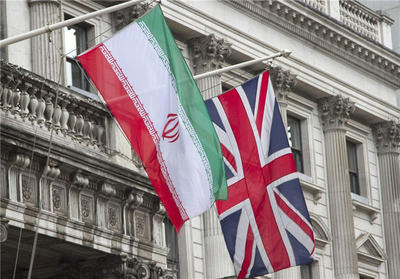In an interview with the website of the Strategic Council on Foreign Relations, Dr Mahmoud Dehghan, describing the purpose of the UK visit of the US Special Representative on Iran, said: “Before Brexit, Britain believed that leaving the EU would be a good alternative for closer relations with the United States and can once again work as the main ally of the US government in all economic, political, and security activities, but the conditions changed little by little in this round and under the current conditions Britain finds itself in the face of a post-election America with an uncertain government.
UK Seeks EU Successor
Referring to Britain’s failed efforts to get closer to America after Brexit, Dehghan added: “Trump has put in place conditions for trade deals with Britain, including that if they want to work with the US they must quit the Joint Comprehensive Plan of Action or other conditions that deal with European issues.” The UK is in a situation where it is very difficult for them to find a suitable successor to Europe.
Noting that experts predict the UK will come back to work with its previous alternatives, the university professor said: “England will not be completely cut off from the European Union and will not fully side with the United States.” At the same time, it will select several independent countries that can act as a bridge for trade links and transactions for the United Kingdom.
He said: “If Iran was not under sanctions, it would be the best option as an important country in the Middle East, but on the one hand Iran is under US sanctions and the United Kingdom would not hurt its relations with the US to be compromised because of its relations with Iran. Moreover, one should not only consider economic rivalries as political rivalries must also be seen. Other countries, such as Saudi Arabia, the United Arab Emirates and Bahrain, which buy British military weapons, however, may set the condition of non-cooperation with Iran in their equations; but the British are unlikely to agree to this condition because of their interests.
“It is not really difficult for our country under the current conditions to think that we can count on England,” he said, adding: “But in politics impossible is always impossible, and I believe that the Government and the Ministry of Foreign Affairs with regard to the needs and interests of England should take into account a review of the strategy in relations with England and think about different aspects of working with London.
Emphasizing that the old inscriptions of England no longer work, he explained that the structures of the political system in the world have changed and there is no longer any old classifications; basically no longer a superpower exists in its past sense. Every power has its strengths and weaknesses, so we also need to have special plans in mind. One has to think about the post-sanctions era; we should not think things will remain the same. In addition, the British government, given the nature of its relationship with the US administration, has the potential to gain some sanctions relief from the Trump administration more than any other government.
“The best strategy is to go through the current situation and enter into new ones despite all the bitter facts in the world about sanctions against Iran,” he said.
Failure of Iran Sanctions Strategy
“It should be borne in mind that Brian Hook’s travels do not have the weight of the past three years,” said the professor of international relations.
On the trips of Brian Hook, US Special Representative for Iran, to Britain and France, Dehghan said: “America today has come to the conclusion that the sanctions strategy has literally failed. It is true that this strategy is still in place and its pressures are felt, but that strategy has failed and Iran has not given up. The Americans themselves have come to this conclusion.
“The United States has shown interest in opening a line of credit, and a meeting of American Senators with Ali Akbar Velayati (international advisor to Supreme Leader) and other issues shows they are trying other ways, too, but they are always working on a few options,” Dehghan said.
Describing the goals of Brian Hook’s trips to France and Britain, he said: “Europeans say that we had no control over Iran’s nuclear program before the Joint Comprehensive Plan of Action, and we do not want to go back to that point.” Europe is also suffering from Iran’s sanctions. In previous sanctions, they lost their markets and delivered them to China, India and Russia. The Europeans were hardly replaced after the JCPOA, and now they do not want to lose this opportunity completely.
Dehghan stressed: “The Europeans do not want to follow the United States entirely and have announced this in various ways that we cannot follow everything the United States dictates. The French president also said that if today the tell us not to work with Iran, we would not work tomorrow and when they say not to work with China or even France! This is not acceptable to us! They themselves have problem with the transnational orders of the Congress and the President of the United States. They do not want to be given orders, because the Cold War era is over. They even have concerns about their security and NATO.
He added: “During his visit, Hook acknowledged that Europe does not want to leave the JCPOA and does not want to dictate everything to Europe.” They have only called for Europe’s coordination with the United States over Iran.










0 Comments